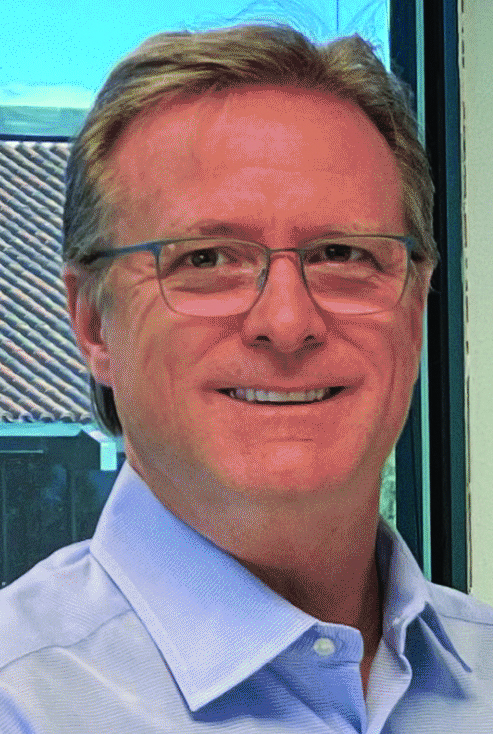Aqua Metals has a lithium recovery pilot plant on Peru Drive at Tahoe Reno Industrial Center. The company acquired a plot of land on Waltham Way at TRIC that included some existing buildings that Aqua Metals is building out as part of an eventual three-building campus headquarters.
Northern Nevada’s emergence as the nation’s premier hub for lithium battery manufacturing and recycling will take another step forward when Aqua Metals brings the first leg of its new lithium-ion recycling facility online in 2024.
Aqua Metals has a lithium recovery pilot plant running 24 hours five days a week at its innovation center on Peru Drive at Tahoe Reno Industrial Center. The company acquired a plot of land on Waltham Way at TRIC that included an existing building that Aqua Metals is building out as part of an eventual three-building campus headquarters.
“We are retrofitting the existing building and ramping it up to thousands of tons per year of refined materials, with the goal of scaling operations to supply refined materials on a commercial scale,” said Aqua Metals Chief Executive Officer Steve Cotton. “We are committed to creating a campus environment, but we will start by building one facility, followed by two additional buildings that will increase our materials offtake.”
 Steve Cotton
Steve Cotton
Aqua Metals Chief Engineering and Operations Officer Ben Taecker told NNBW the existing building at Waltham Way is just over 20,000 square feet. The company plans to construct another 40,000 to 60,000 square feet of new space to house its full-scale lithium recycling operations, Taecker said.
The first building will be able to process about 3,000 tons of “black mass” into roughly 1,500 tons of salvaged metals, which include lithium hydroxide, nickel, cobalt, copper and manganese. Black mass is an industry term for the feedstock Aqua Metals purchases from suppliers who specialize in collecting, disassembling and crushing discarded lithium batteries and reducing them into an amalgamated concentrate – black mass – of valuable metals.
Lithium hydroxide is extracted into a powder in its pure form, while cobalt, nickel and copper are extracted as metals. Manganese is extracted and recaptured as manganese dioxide. At full operations, the campus should be able to process about 10,000 tons of black mass annually.
“We have a pretty aggressive expansion plan,” Cotton said. “The opportunity here is quite large in today’s market.
“We expect to break ground on the second building next year,” he added. “The first facility is being retrofitted, and additional processing equipment will be delivered throughout the year.”
Although Aqua Metals cut its teeth in the lead-acid recycling operations, the real promise lies in recycling black mass from lithium batteries, Cotton said.
“The value of the metals in the lithium space are tens of thousands of dollars per ton for some of the materials, and with lead, it’s maybe $1,700 a ton. We see more opportunities in the lithium space,” he said.
Revenue generated from both recycling operations will support additional growth of the lithium recycling campus operations and expansion of its facilities, Taecker added.
 Ben Taecker
Ben Taecker
Founded in Oakland in 2014, Aqua Metals came to Northern Nevada in 2015 and began constructing a lead-acid recycling facility on Peru Drive in Tahoe Reno Industrial Center. The company moved its corporate headquarters to Northern Nevada in 2018. The 137,000-square-foot pilot plant came online in 2016 and served as a proving ground for the company’s unique Aqua Refining technology, an electricity-based way to extract crucial metals from recycled lead-acid batteries.
Battery recycling is typically done through smelting, which uses high-temperature furnaces which can create hazardous working conditions and significant carbon emissions, Cotton said. Other recyclers use a variety of hazardous chemicals in the recycling process. Aqua Metals patented technology is electrified, so it doesn’t use chemicals or high heat.
“The result is a significantly reduced carbon emissions footprint,” Cotton said. “That was the impetus for developing the Aqua Refining process for the battery industry.”
Aqua Metals holds 75 global patents on its Aqua Refining technology, Cotton said. After proving its technology, the company transitioned its efforts with lead-acid batteries to a licensing environment and supplying equipment and services to companies working in that sector of the recycling industry. Its first licensee is based in Taiwan, and the company sent a team last summer to Taiwan to help that licensee get a new battery recycling facility running.
At the same time, Aqua Metals began broadening its recycling efforts to focus on lithium-ion batteries. The company’s innovation center housed bench-scale lab testing of lithium refining capabilities. Once bench-scale testing was proven, Aqua Metals built a pilot plant for its lithium battery recycling operations. That facility began operating in 2022.
The shift from lead-acid batteries to lithium-ion will help close the supply loop for lithium battery manufacturing, Cotton noted.
“Lead-acid batteries have a very mature market – if you buy a new lead battery, 80 to 90 percent of the lead in that battery, and even the plastics, came out of an old battery,” he said. “If you buy a new lithium battery, pretty close to zero percent of the minerals came from recycling. It’s a new industry with batteries that are starting to reach their end of life and will need to be recycled.
“We have learned a lot about how to go from each phase of development to the next,” Cotton added. “We have done our lab testing, moved to bench-scale testing and pilot plant operation, and we built a modest product facility by design. We want to be good stewards of our cash as we grow our revenue and company, so we are doing it in a modular approach.”
Comments
Use the comment form below to begin a discussion about this content.
Sign in to comment